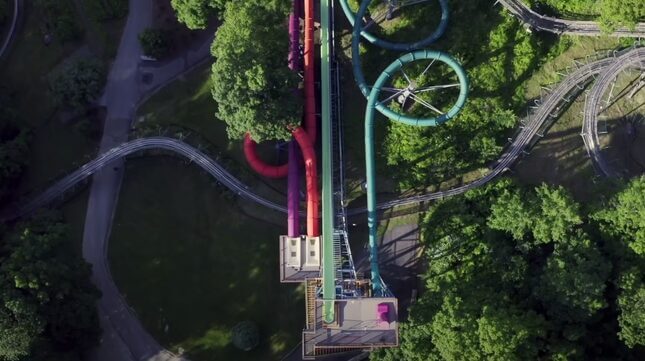

As a child, I lived for the safe thrill of an amusement park. I loved a rickety wooden rollercoaster that sounded like it would break at any second, a local church fair Gravitron, a Jersey Shore Pirate Ship that looked tame from the sidewalk but was terrifying when experienced. But it wasn’t until I got older that I realized that amusement parks, whether it’s Disney World or your local waterpark, are absolutely reckless places with little to no federal oversight in America. Deaths and life-changing injuries have haunted successful parks for decades, but they don’t keep excited children and their parents from buying tickets.
Class Action Park is a tribute to a water park beyond dangerous. The HBO Max documentary tells the tale of Action Park, a legendary Vernon, New Jersey-based water park that garnered a reputation for its lawlessness, rowdy teenage crowds, and physically impossible water slides. There’s a cartoonish loop-de-loop waterslide that kids would get stuck and banged up inside of, burning asphalt tracks that came with broken slides that couldn’t brake properly, and Tarzan-style rope swings where goofy park-goers would flash the crowds. A tiny park with such a dangerous reputation, Action Park’s legacy has spawned not just a feature film but now this documentary, which attempts to capture what made the park so thrilling for a generation of tristate-area ’80s kids. But in reaching for a poignant framing for the park’s chaos, Class Action Park feels more like a collection of nostalgic, folklorish stories than what could have potentially been a deeper interrogation into the park’s creation and legacy.
-

-

-

-

-

-

-

-

-

-

-

-

-

-

-

-

-

-

-

-

-

-

-

-

-

-

-

-

-

-

-

-

-

-

-

-

-

-

-

-








































